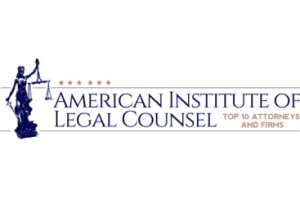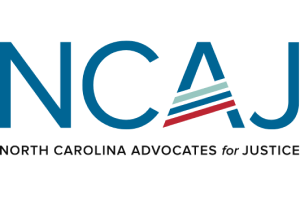Car Accident Attorneys
Fayetteville Car Accident Lawyer
The Richardson Firm, a reputable law practice, offers comprehensive assistance in the area of car accidents. With an impressive track record in helping victims navigate the complexities of car accident cases, we strive to bring justice to those who have been adversely affected. The process following a car accident can be overwhelming, full of daunting paperwork, multiple interactions with insurance companies, and complicated legal procedures. Our proficient attorneys understand the profound impact that these accidents can have, consequently, presenting each case with utmost diligence and determination. If you are in need of legal help in a car accident case, you can reach The Richardson Firm at (910) 488-5050 to schedule a free consultation. Our attorneys value your rights and support you every step of the way. Serving with resolve, The Richardson Firm is your partner towards achieving fair compensation.
The Richardson Firm’s Personal Injury lawyers are here to help.
Our team of lawyers represent car accident victims and their families.
Each year, thousands of people are injured or killed on North Carolina roads due to the careless and negligent behavior of motor vehicle drivers. The physical and emotional effects that result often leave the victim and his or her family left struggling to cope in an extremely difficult situation. Fortunately, there are options to assist injury victims as they recover.
If you or someone you love has been injured in a car, truck or other type of motor vehicle accident, our local personal injury attorneys will work vigorously to protect your rights and obtain the compensation you need and deserve. Contact us to schedule your consultation to discuss your situation.
Following an injury-related accident, physical recovery is the No. 1 priority. However, this can be difficult if you do not have adequate funds to pay for your medical bills and rehabilitation needs. You may also be finding it hard to provide for your family’s most basic needs due to your inability to work. Our attorneys recognize these struggles. We will fight on your behalf to ensure you receive the care and compensation you need, including lost wages. We have successfully represented victims injured as the result of:
- Car accidents
- Truck accidents
- 18-wheeler accidents
- Motorcycle accidents
- DUI/DWI
The road systems in Fayetteville and Southeastern, North Carolina are not easy to navigate. As a result, we have frequent, injury-causing collisions. It is important to understand that you do not have to go up against “the other side” alone. You need a car accident lawyer in Fayetteville who understands the law and who will stop at nothing to protect your rights and pursue your interests.
Dealing with Auto Insurance Companies
North Carolina law regarding car insurance is nuanced and complex. In any given car accident, there can be multiple insurance companies involved. If you attempt to resolve your case alone, you could miss out on valuable resources in the form of a missed insurance claim, or you could settle for far less than your case is worth.


Attorneys Billy and Matt Richardson have spent decades fighting car insurance companies on behalf of their clients. We will investigate all available sources of financial recovery and ensure that you receive full compensation for your damages.
The information below goes into further detail about many of the issues our clients face after they are involved in a motor vehicle collision.
Types of Car Accidents
Fueling our commitment to diligently serve our clients with vehicular accident claims, we offer concise but insightful information about various types of car accidents for their understanding.
- Head-on Collisions: This refers to a circumstance where two vehicles, traveling in opposite directions, collide front to front. Often, the resultant impact causes severe damage and, in worst-case scenarios, can lead to fatalities.
- Rear-end Collisions: These type of accidents represent situations where one car hits the back of another. Often triggered by tailgating, sudden stops, or distracted driving, rear-end collisions can yield injuries like whiplash and property damage.
- Side-impact Collisions: Known alternately as T-bone or broadside collisions, side-impact collisions occur when the front of one vehicle hits the side of another. These accidents, not uncommon at intersections, can lead to severe injuries given the minimal side protection offered by cars.
- Sideswipe Accidents: Sideswipe accidents happen when the sides of two parallel cars touch each other. These can be minor, causing only superficial damage, or major when one car is forced off the road or into another lane.
- Chain Reaction Accidents: These are multi-vehicle collisions often set off by one car hitting another, triggering a series of subsequent collisions. These accidents can be complex to resolve due to multiple parties involved and diverse perspectives of fault.
- Single-Vehicle Accidents: These accidents involve only one vehicle and can take the form of running off the road, flipping over, or hitting a stationary object. They oftentimes are triggered by weather conditions, abrupt swerving, driver inattention, or vehicle defects.
Understanding the nature of these accidents can greatly aid in navigating the process of examining, asserting, and defending one’s rights and interests in such unfortunate incidents.
Causes of Car Accidents
Navigating the world of car accidents can be a complex endeavor. Several factors can contribute to these unwelcome occurrences.
- Distracted Driving: This remains one of the leading causes of car accidents in the United States. It can encompass any activity that diverts attention from driving. Arguably the most egregious diversion is the use of cell phones, whether for texting, talking or other functions while driving. This behavior compounds the risk of a fatal accident significantly.
- Drunk Driving: When alcohol impairs a driver’s ability to operate their vehicle safely, devastating accidents can result. Even small amounts of alcohol can reduce reaction time and coordination, making accidents more likely.
- Aggressive Driving: This manner of operating a vehicle involves multiple unsafe and unlawful driving behaviors being displayed simultaneously or in succession. Examples include tailgating, abrupt lane changes, and disregarding traffic control devices.
- Speeding: Driving over the speed limit is a common cause for road accidents. This action reduces a driver’s ability to steer safely around curves or objects in the roadway, extends the distance necessary to stop a vehicle, and increases the distance a vehicle travels while the driver reacts to a dangerous situation.
- Failure to Yield: Not adhering to yield signs or not giving the right of way where required can cause serious accidents, especially at high-speed intersections or on highways.
- Auto Defects: Unforeseen mechanical failure or manufacturing defects in a vehicle can result in catastrophic accidents. These defects could range from brake failures to tire blowouts.
- Poorly Maintained Roads: Potholes, inadequate signage, and poor lighting are examples of how poorly maintained roads can cause accidents. Both local and state authorities have a duty to maintain road infrastructures for public safety.
A better understanding of these causes can guide you in taking preventive measures. Furthermore, knowing the factors at play in an accident can provide crucial perspective when dealing with legal matters following such unfortunate incidents.
What to Do After a Car Accident
Being involved in an automobile accident can often leave one feeling disoriented and uncertain about what steps to take next. The following points provide a comprehensive guide for actions to be undertaken in such scenarios:
- Getting Medical Attention: Regardless of the severity of the incident, your health should be paramount. Seeking immediate medical care ensures injuries, whether apparent or hidden, are timely attended to. If injuries from the accident manifest later, already having a medical record can prove crucial.
- Reporting the Accident to the Police: Contact the police as soon as possible to develop a legal account of the event. This police report can be invaluable when dealing with your insurance company and potentially the other driver’s insurer.
- Reporting the Accident to your Insurer: Promptly inform your insurance company about the accident to initiate your claim process. Provide them with complete, factual information, and cooperate fully to expedite the claim settlement process.
- Getting Contact Information of Witnesses: Witnesses can play a vital role by providing an unbiased account of what transpired. Collect names, phone numbers, or addresses of any witnesses to aid in your claim or potential legal proceedings.
- Taking Photos or Videos of the Accident Scene: Visual evidence can help illustrate the severity and implications of the incident. This could include damages to vehicles, location layout, traffic signs, injuries, or any contributing factors to the accident.
- Talking to an Attorney: Consulting with a legal professional can provide the assistance necessary to navigate through the complicated procedures that follow an accident. They can offer the needed support in dealing with insurance companies, any potential legal implications, and protecting your rights.
It is essential to remember that you should never admit fault at an accident scene. Liability can often be complex and is for the relevant authorities to determine based on the facts. Your focus should be on the recommended steps to safeguard your interests.
Whom to Sue After a Car Accident
Car accidents can be a result of various reasons and can involve numerous parties. Understanding who can be held accountable is pivotal when seeking compensation for damages.
- The driver of the other car: If another driver is found to be at fault, liability typically falls on them. This covers situations where the driver was speeding, not following traffic laws, inattentive, under the influence, or otherwise negligent.
- The employer of the driver of the other car: If the driver was operating a vehicle for work purposes during the incident, their employer might also bear responsibility. This is often the case in accidents involving commercial trucks, delivery vehicles, or company cars – a term often referred to as ‘vicarious liability’.
- A car manufacturer: Automobile manufacturers may also be held accountable if a defect in the vehicle is found to be a contributing factor to the accident. Examples could include faulty brakes, airbags not deploying, or engine failures.
- A repair shop that performed maintenance on a vehicle: If a recent repair or service was carried out incompetently, leading to a mechanical failure that caused the accident, the repair shop may also be held liable for damages.
- The government entity responsible for maintaining the road: Poorly maintained roads, unclear signage, or hazardous road conditions can contribute to car accidents. In such cases, the local, state, or federal entity tasked with maintaining the road may be implicated in the accident.
Navigating through these complexities can be demanding and requires a complete understanding of the legalities involved. It is crucial to have a diligent, well-seasoned legal team on your side for navigating these complex processes.
Proving Liability for a Car Accident
Being involved in a car accident can be an overwhelmingly complex experience. After such an incident, you might find yourself grappling with a plethora of legal terms and processes. Among these, a crucial concept to understand is the negligence claim which consists of four main elements, namely duty of care, breach of duty, causation, and damages.
Duty of care refers to the responsibility one has to avoid causing harm to others. In the context of driving, this means adhering to traffic laws and regulations, and basically embodying prudence that any reasonable individual would exercise in similar circumstances. Despite this expected responsibility or duty of care, instances arise where this standard is disregarded, leading to a breach of duty. This could be in the form of overt traffic violations – such as reckless driving, drunk driving, speeding, and failing to adhere to traffic signals.
The third component, causation, links the aforementioned breach of duty directly to the incident. It asserts that the accident and the resulting potential injuries or damages wouldn’t have occurred if it hadn’t been for the negligent actions of the driver.
Lastly, damages refer to any losses or injuries suffered by the victim as a result of the accident. These could range from physical harm and medical expenses to property damage, lost wages, and mental distress. Compensation for these damages is often the core of the claim.
Evidence in Car Accident Cases
- Photos and Videos of the Accident Scene: This sort of evidence is essential for proving fault in a car accident case. Photos and videos can give a clear view of the accident scene, including the damages to the vehicle, the road conditions, and the position of the vehicles post-accidents.
- Black Box Data from the Vehicles: Modern vehicles are typically equipped with a black box that records valuable data such as speed, brake application, and other pertinent details that can help establish the facts of the accident.
- The Police Report: The police report often includes a diagram of the accident, statements from all parties involved, and sometimes, the officer’s opinion about who was at fault. This report can serve as a critical piece of evidence in a car accident claim.
- Accident Reconstruction: In some complex cases, accident reconstruction may be needed. A trained professional can recreate the scenario using forensic evidence, giving a clearer picture of what occurred and who may be at fault.
- Eyewitness Testimony: Eyewitness accounts can provide an unbiased perspective on how the accident occurred. These testimonies can corroborate or dispute the claims made by the parties involved in the accident.
- Expert Testimony: Often, car accident cases might need the review of an expert such as a medical professional, mechanical engineer, or accident reconstructionist. Their testimony can help explain complex topics and lend weight to the claims of the affected party.
- Documentation of Damages: Pieces of evidence like medical bills, pay stubs, and receipts for car repairs are necessary to quantify the financial losses. They form a crucial part of recovering the full compensation to which the victim may be entitled. These documents demonstrate the very real cost of the accident on the victim’s life.
Common Injuries in Car Accidents
Car accidents can result in a variety of injuries, some of which can even be fatal, warranting not only immediate medical attention but also potentially leading to a wrongful death claim.
- Brain Injuries: Trauma to the head during a car accident can result in varying degrees of brain injuries. These can range from concussions, where recovery is often complete, to more severe traumatic brain injuries which can have long-lasting and severe impacts on cognitive functions, physical abilities, and emotions.
- Spinal Cord Injuries: Spinal cord injuries generally result when a violent blow dislocates or fractures the spine. Given that the spinal cord is integral for transmitting messages between the brain and the rest of the body, any damage can lead to paralysis, loss of sensory function, or even death.
- Burn Injuries: These injuries can occur if a car catches fire after an accident or due to the release of hot fluids. Burn injuries can cause considerable pain, require extensive treatment, and leave long-lasting scars.
- Broken Bones: The force exerted during a car accident often results in broken bones. Arm, leg, rib, and collarbone fractures are common and can require significant recovery time, involving physiotherapy and in some cases surgery.
- Soft Tissue Injuries: Car accidents often lead to soft tissue injuries, including whiplash, which occurs when the neck suddenly jerks back and forth. This can damage ligaments, tendons, and muscles, causing pain, swelling, and reduced mobility.
- Lacerations: Cuts and scrapes are common in car accidents from shattered glass or metal. Deep lacerations may need stitches and can result in severe scarring.
When fatal injuries occur due to a car accident, the surviving loved ones often pursue wrongful death claims, which are complex and emotionally challenging.
Damages in Car Accident Cases
In navigating the often complex arena of car accident liabilities, understanding the viable claims you can make for damages is paramount. Damages sustained after a car accident are generally categorized into two broad types: economic and non-economic damages.
- Economic Damages: These are quantifiable financial costs incurred directly due to the car accident. They include:
- Medical Bills: This encompasses expenses for immediate medical care post-accident as well as continued treatments or therapies.
- Lost Income: If your injuries prevent you from working either temporarily or permanently, you may be entitled to compensation for lost wages.
- Future Treatment Costs: Injuries might require ongoing treatment, surgeries, or therapies in the future. You may claim for these prospective costs.
- Lost Earning Capacity: If your ability to work and earn income in the same capacity as you did before the accident is affected, you can claim for this loss.
- Property Damage: This refers to the costs associated with repairing or replacing your vehicle and other property damaged in the accident.
- Non-Economic Damages: These relate to subjective costs that aren’t easy to quantify in monetary terms, yet have significant implications on a person’s wellbeing.
- Pain and Suffering: This considers the physical pain and emotional distress experienced due to the accident and resultant injuries.
Understanding these potential claims can facilitate better decision-making when seeking compensation for damages. Be certain to consult a legal professional experienced in car accident cases, who can provide comprehensive guidance tailored to your unique circumstances.
Car Accident Statute of Limitations
In the realm of car accidents and subsequent litigation, there exists a time constraint known as the Statute of Limitations. It plays a pivotal role in determining whether a victim of a car accident in North Carolina is eligible to bring forth a claim against the at-fault party. Simply put, the Statute of Limitations is a defined period of time set by law, during which a victim must file a lawsuit. In North Carolina, the Statute of Limitations for car accidents is three years from the date of the accident. This means a victim has three years to initiate legal proceedings for any personal injury or damage to property incurred as a result of the accident.
Why does this matter to victims of car accidents? This time frame is crucial because if a victim fails to file a claim within this period, the court may refuse to hear their case at all, effectively eliminating the possibility of seeking compensation for their injuries or damages. Therefore, understanding the Statute of Limitations can often mean the difference between securing compensation for medical bills, car repairs, lost wages, and pain and suffering or missing out on such resources altogether. Our law firm is well-versed in these time-sensitive matters and stands ready to guide car accident victims through the sometimes complex landscape of personal injury law, helping them to understand their rights and navigate the legal process within the given time frame.
Insurance Claims in Car Accident Cases
In the realm of car accidents, deciphering insurance regulations is a crucial necessity that often remains misunderstood. North Carolina is streamlined within the fault-based insurance system, indicating that the entity held responsible for the accident is also accountable for the resulting damage. This account may transpire directly or via the individual’s insurance provider.
Diving into the legal requirements, it is mandated for motor vehicle owners in North Carolina to maintain certain minimum amounts of liability insurance. These baselines include $30,000 for bodily injury to one person, $60,000 for bodily injury to two or more people, and $25,000 for property damage. These requirements are instituted by the state to ensure motorists have the financial capability to compensate damage caused to others in a car accident.
A particularly noteworthy factor is uninsured or underinsured motorist coverage. While not a binding requirement in North Carolina, these coverages are advisable to cushion potential financial blows, specifically if a collision occurs with a motorist who lacks adequate insurance. Bodily injury coverage minimums align with the state’s liability insurance requirements whereas property damage coverage minimums rest at $25,000. For more information on Uninsured Motorist Coverage, we recommend reading this blog post.
A fundamental term to understand within the insurance framework is bad faith. This refers to situations wherein insurance companies fail to fulfill their obligations to policyholders, such as delaying payment without a valid reason or denying a claim without proper investigation. Awareness of this concept is integral for policyholders, should they ever be subjected to such adverse situations in the wake of car accidents.
Settlements in Car Accident Cases
Settling a car accident case outside of court is a preferred choice for many as it typically expedites the process, mitigating the need for long, drawn-out court proceedings. Essentially, when a settlement is agreed upon, it signifies that both parties have been able to reach a mutually acceptable resolution without the need for a court trial. One of the primary benefits of settling a car accident case is the assured compensation and certainty of the outcome, which is beneficial for the victim who might be dealing with medical costs or loss of wages due to the incident.
However, it’s important to understand the full implications of accepting a settlement. When you agree to a settlement, you are effectively surrendering your right to pursue any further legal action related to the accident. This is termed as the “release of claims”, and it effectively concludes the case. Hence, it’s crucial to have a comprehensive understanding of your injuries, required treatment, and overall costs before you decide to settle.
Settling doesn’t always guarantee the highest possible compensation, hence having an experienced law firm by your side can make a significant difference. At our law firm, we prioritize the needs of our clients, ensuring they are well informed about their choices and their implications. Our lawyers handle the negotiation process with keen attention to detail, leaving no stone unturned in their pursuit of fair compensation. It is our dedication to our clients, along with our years of experience that allows us to advocate effectively for victims of car accidents.
Let Us Help You Pursue Compensation
The aftermath of a car accident can often leave victims grappling with physical injuries, emotional distress, and financial burdens. During such trying times, it is critical to have a reliable and proficient law practice as your advocate. At The Richardson Firm, we are dedicated to providing comprehensive legal aid to victims of car accidents. Backed by a team with an established track record, we work relentlessly in pursuit of the compensation you deserve. Whether it entails handling insurance claims, gathering critical evidence, assessing damages, negotiating settlements, or even going to trial, our unwavering commitment lies in safeguarding your rights and interests throughout the entire process. Allow us to shoulder your legal burdens so that you can focus on your recovery. If you or a loved one has suffered from a car accident, contact us at (910) 488-5050 to discuss your case and learn how we can assist you.
Contact Us Today!
If you have been injured in a car accident, it is important that you contact us right away. Schedule your consultation with one of our truck and car accident Fayetteville attorneys to discuss your options moving forward. You may also call 910-488-5050.
The experienced attorneys at The Richardson Firm, PLLC, proudly represent individuals in personal injury and automotive accident cases in Fayetteville and surrounding North Carolina cities, including Clinton, Fort Bragg, Spring Lake, Lumberton, Dunn, and beyond.









